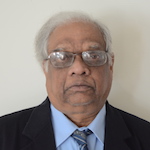A Brief Colonial History Of Ceylon(SriLanka)
Sri Lanka: One Island Two Nations
A Brief Colonial History Of Ceylon(SriLanka)
Sri Lanka: One Island Two Nations
(Full Story)
Search This Blog
Back to 500BC.
==========================
Thiranjala Weerasinghe sj.- One Island Two Nations
?????????????????????????????????????????????????Sunday, April 30, 2017
Sri Lanka’s Crumbling Credibility

By Kumarathasan Rasingam –April 29, 2017
The credibility of Sri Lanka in relation to the settlement of the 60
year old ethnic problem of Tamils can be judged from the fate of several
pacts, agreements and undertakings which were made from 1956 to 2009
and the Sri Lankan Governments unwillingness to comply with the
implementation of its own undertakings:- LLRC [Lessons Learnt and
Reconciliation Commission] recommendations: The August 1 2015 UNHRC
Resolution 30/1 and its delaying tactics in implementing the recent
similar Resolution in March 2017.
This article tries to detail the failing credibility of Sri Lanka since
then particularly after the Human Rights Resolution on October 1st 2015.
This was a resolution adopted with the blessings of United Nations
Human Rights Council and sponsored by USA with Sri Lanka being a
co-sponsor. By co-sponsoring the resolution Sri Lanka unequivocally and
fully committed itself to implement all the recommendations mentioned in
the Resolution. Sri Lankan Prime Minister Ranil Wickremasinghe defended
the Resolution and even vigorously justified the “establishment of a
Sri Lankan Judicial Mechanism including the Special Counsel’s Office of
Commonwealth and other foreign judges, defence lawyers and authorised
prosecutors and investigators.”
These recommendations can be described as the corner stone of this
resolution aimed to fulfill the targeted commitments of “accountability,
justice and reconciliation”. Earlier Sri Lanka successfully killed the
proposal mooted by the UN High Commissioner for Human Rights who
recommended a “Hybrid court integrating foreign judges etc” and get the
international mechanism with foreign jurist’s participation.
Having fully committed to implement this Resolution Prime Minister
Wickremesinghe and President Sirisena defended all the recommendations
and PM Ranil even stated that there have been instances where foreign
lawyers have participated and contributed their skills and knowledge in
the legal proceedings in Sri Lanka like the appearance of Mr. Quass, QC
in the former Prime Minister Bandaranaike assassination case in 1960.
There were instances when eminent Sri Lankan lawyers have served as
judges in foreign countries particularly in Africa. It is to be stated
that the Sri Lankan constitution does not in any of its section prohibit
the participation of any foreign judges. What is not prohibited can be
allowed provided the modalities of appointments are followed involving
the President and/or Judicial Service Commission as required.
It is relevant to quote the confusing and conflicting statements made by
Government Ministers including the Prime Minister and the President in
relation to the judicial mechanism and investigation.
On January 11th 2015: Rajitha Senevaratne – The
Government Spokesperson stated: “That Sri Lanka’s new Government will
not hand over anyone to an international inquiry investigating
allegation of war crimes”.
On February rd3, 2015: Foreign Minister Mangala Samaraweera- In
an interview to ‘Swarajya’ said “We hope to have technical assistance
from United Nations even perhaps judges from Commonwealth”.
On June 7th 2015: Justice Minister Wijeyadasa Rajapakshe – Vowed to set up a credible domestic mechanism.
On August 24th 2015: Prime Minister Ranil Wickremesinghe – In
an interview with Hindu stated that “There is no legal basis for
international investigation within Sri Lanka adding that any
accountability mechanism has to be domestic in nature.”
On January 29th 2016: President Sirisena – In an
interview with Al-Jazeera stated that “We definitely do not need
outsiders. He also insisted that Sri Lanka was not being investigated
for war crimes, but rather allegations of human rights”.
On January 31st: Prime Minister Ranil Wickremesinghe said:
If we are to permit foreign judges to sit in judgement then our
constitution has to be amended with the consent of the people at a
referendum” [News Radio US]
On February 20th 2016: Prime Minister Ranil Wickremesinghe – While
in India at Guruvayur stated that “We may not have the full expertise
to identify the exact factors that led to the casualties, so
international participation is welcome for determining such cases”.
On February 2016: foreign Minister Mangala Samaraweera – In
an event at US Institute of Peace in Washington said that “The previous
statements of the Prime Minister Ranil and the President Sirisena was
their opinion and the final decision would be taken after wide
consultation with all stake holders”
On July 8th 2016: President Sirisena – Stated that “As
long as I am the President; I will not allow foreigners or organizations
to interfere in the internal affairs”. [Ceylon News]
On July 15th 2016: General Sarath Fonseka – said that
“Government had agreed to allow foreign monitors and obtain
international technical assistance and the government was not in favour
of including foreign judges”. [Daily Mirror]
On January 6th 2017: Minister of Justice – said that
“He had no confidence in the Consultation Task Force [CTF] which called
for a judicial mechanism with foreign involvement”. [Daily Mirror]
On January 7th 2017: State Minister Laxman Yapa – said “Only logistical and technical assistance would be obtained.” [Daily Mirror]
President Sirisena commenting on Consultation Task Force [CTF] expressed
his disapproval of most of its recommendations including hybrid court
and independent investigations into war Crimes.

